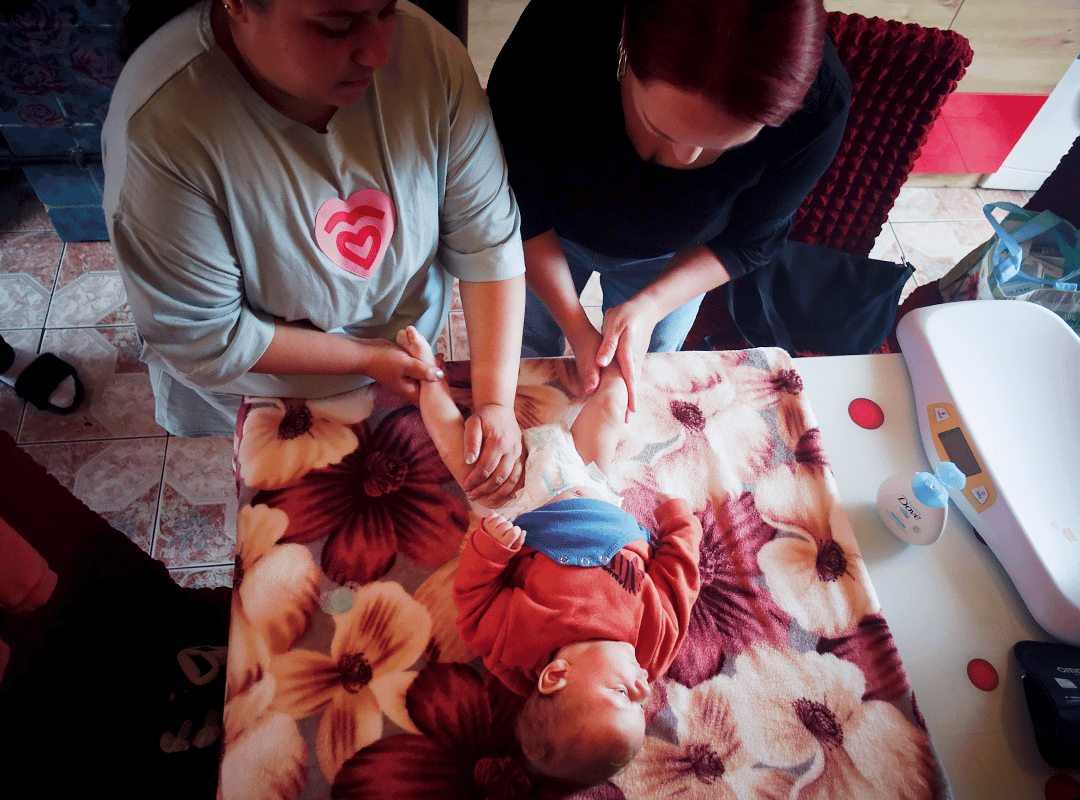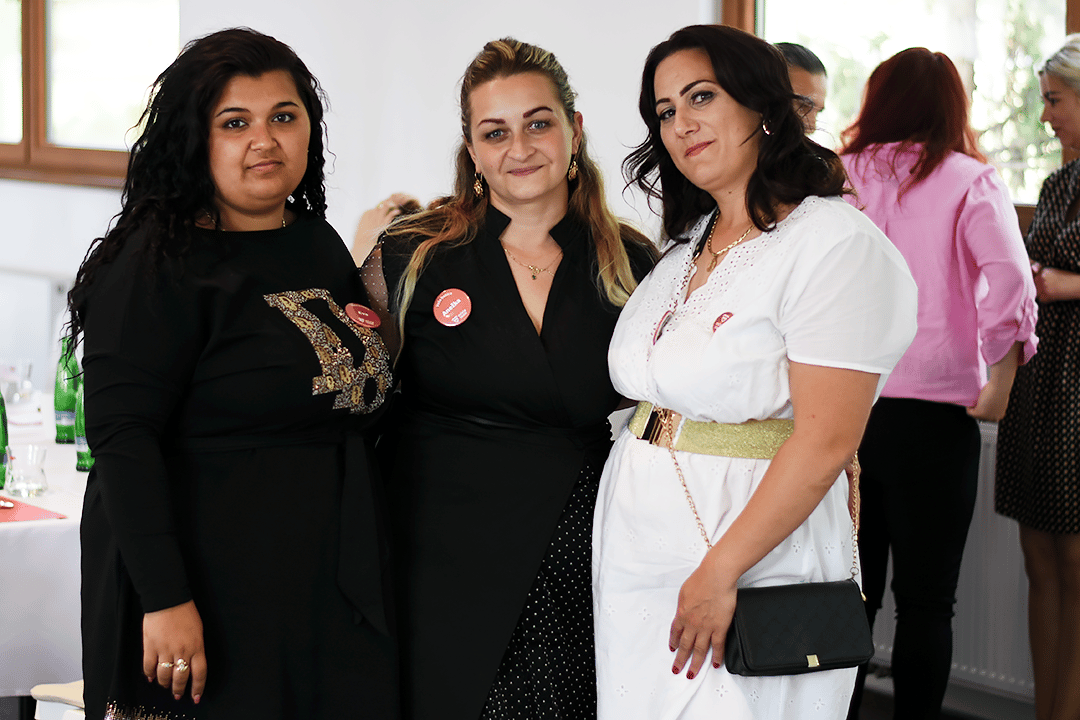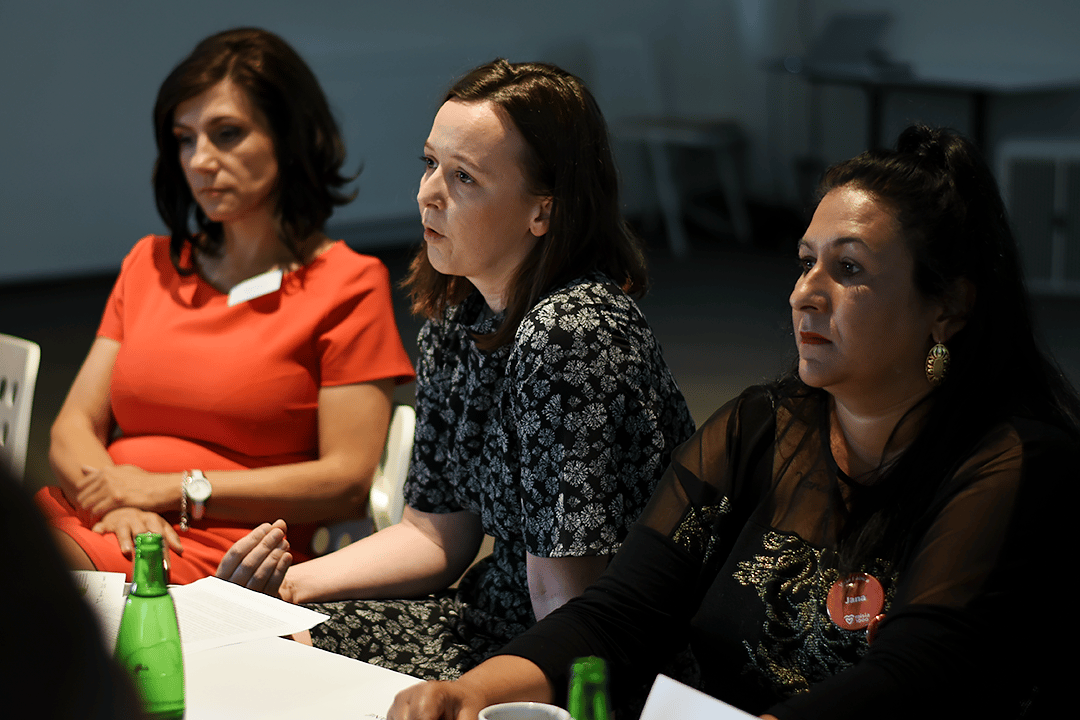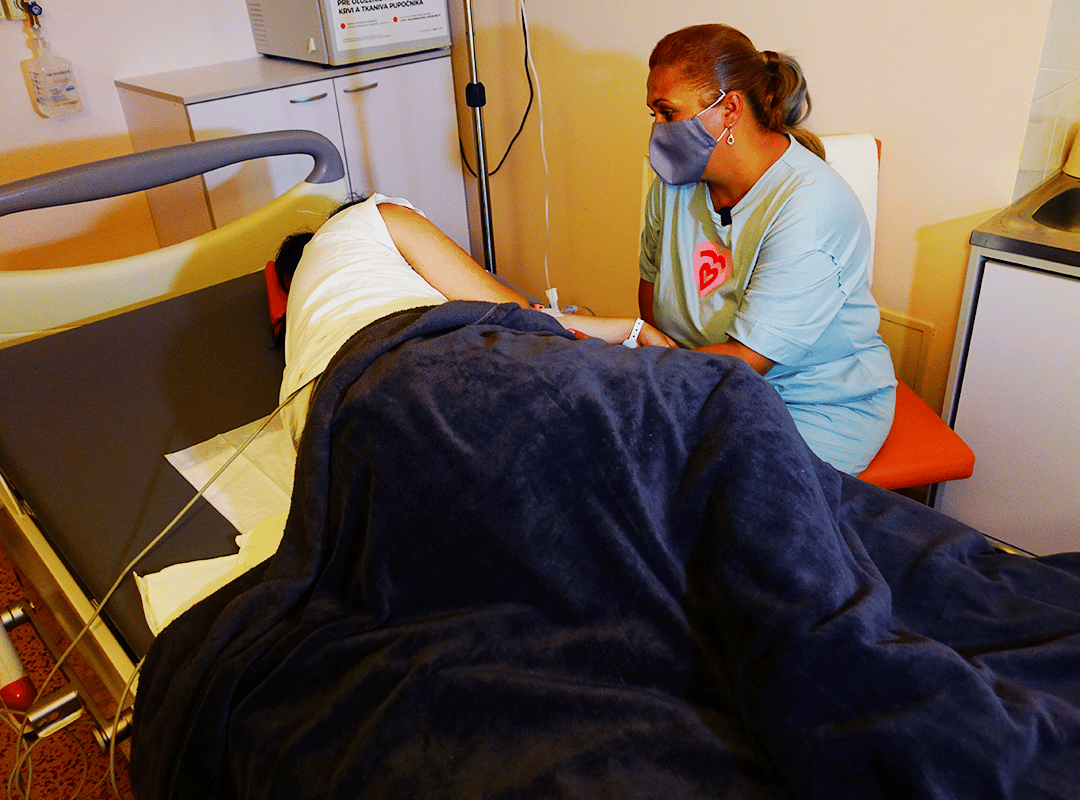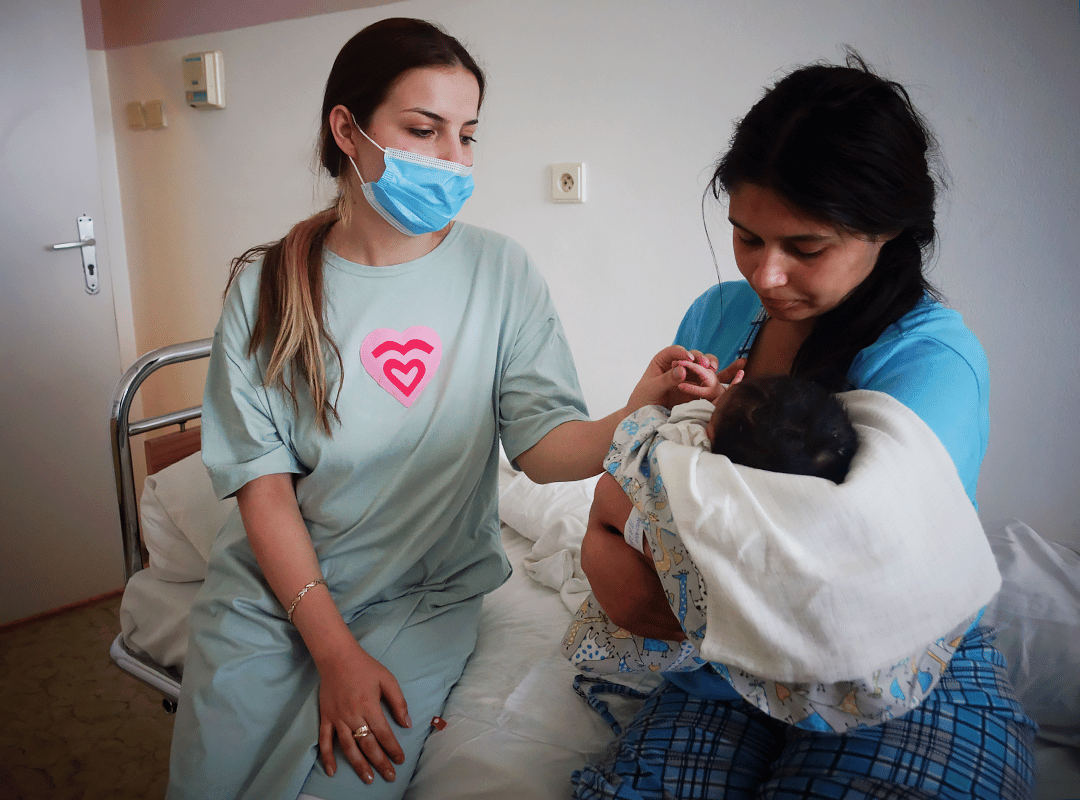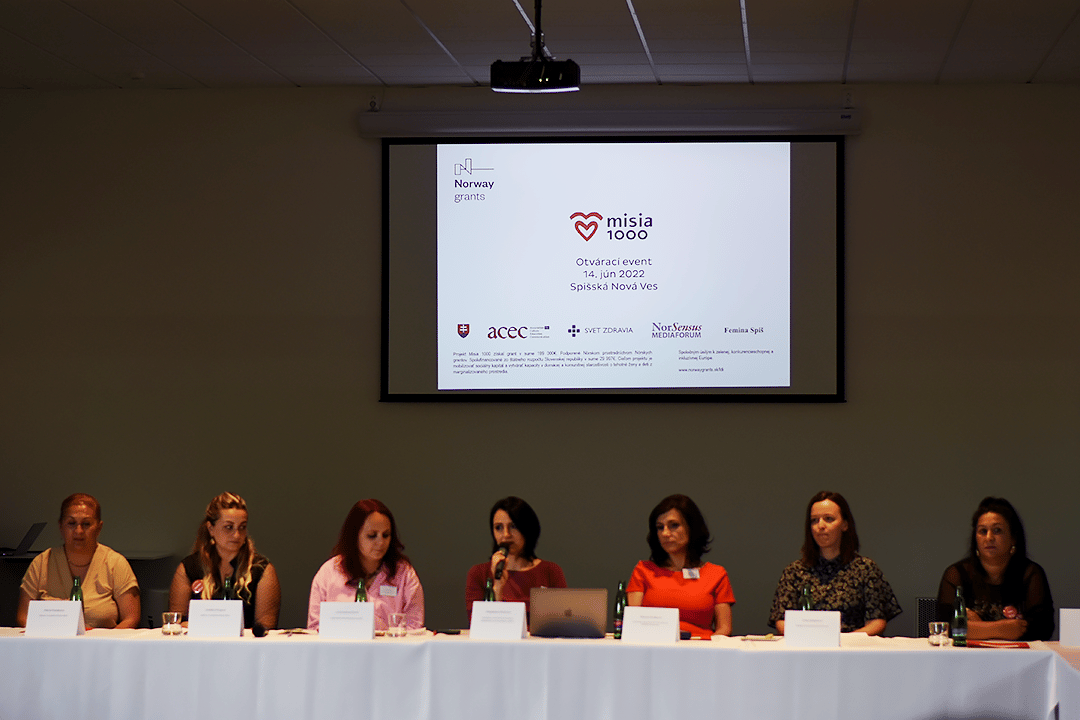Guest article by The Association for Culture, Education and Communication (ACEC), Slovakia
A project initiated by the Association for Culture, Education and Communication (ACEC) called Mission 1000 has been realized in the area of Spišská Nová Ves in the Slovak Republic. Eleven specialised Roma Health Mediators, the so-called midwives, help mothers from marginalised communities during their pregnancy and after childbirth, therefore highlighting the crucial first 1,000 days from conception to the age of 2 years.
“Through midwives, specialized health mediators, we are building community capacity in pregnancy care during stay in the maternity ward and after discharge. In this way, we create communication bridges and develop relationships among communities,” explained ACEC director, Magdaléna Rothová. “In Slovakia, antenatal preparation, necessary postnatal care, and activities to develop parenting skills are almost inaccessible for parents who do not have enough financial resources“, she added.
The midwives operate in several villages in the Spiš Region. They realize activities with and for girls, pregnant women and stay-at-home mothers directly in the settlements, but also in hospitals. As part of their activities, they cooperate with local government, community centres, other auxiliary professions, and health care providers. In Spišská Nová Ves, the midwives work at the Svet zdravia Hospital in the gynaecology and obstetrics, and the paediatric wards.
“We very much welcome the fact that they speak Romani and thus create a sense of security for these mothers and children. For example, if the babies in the paediatric ward do not have an accompanying person, they often see these midwives as their saviours, because they speak their language. In the maternity ward, they help educate mothers in lactation counselling,” Renáta Šuláková, the hospital’s director, appreciated the presence of midwives in the hospital. “It is the first thousand days from conception that are very important for the life of the baby. It lays the foundation for the immune system, metabolism and brain development. While these colleagues primarily help moms from poor communities, I believe their help will be in demand in the rooms of all moms in our maternity ward. They raise awareness and break down barriers between staff and patients,” she added.
Three years ago, ACEC launched a pilot project, Mission 1000, with help of volunteer women, thanks in part to the support of the Penta Foundation. With financial support from Norwegian grants and the state budget, the first eleven midwives have now been recruited.
One of the midwives is Marta Polláková from Spišská Nová Ves, who worked as a kindergarten teacher for 20 years. She takes the position of a midwife as her mission and her main goal is to help mothers. “I feel very good in this job, it fulfils me, although working with people is demanding, and if you work in a settlement, it is even more demanding. But it makes me even more happy when I see that the mothers want to work with me and that the children are happy when I come,” she concluded.
“We offer them help with the baby’s development while it’s in the belly, we take care of them before the birth and also after the birth. We teach them how to change the nappies, bathe or massage the baby and we also make sure the mother’s health is at its best,” explained midwife Anežka Mirgová.
On the occasion of the presentation of the activities of the Mission 1000 project, nearly fifty participants met in Spišská Nová Ves, attracted by the topic of early childhood care and effective approaches to early childhood care in the conditions of marginalized communities in Slovakia. The event also included a presentation of the planned First Years First Priority campaign.
The Mission 1000 project benefits from a €199,000 grant from Norway through the Norway Grants. The project has been co-financed from the State Budget of the Slovak Republic in the amount of €29,900. The aim of the project is to mobilize social capital and build capacity in home and community care for pregnant women and children from marginalized backgrounds.
About ACEC
The Association for Culture, Education and Communication (ACEC) is an NGO based in Slovakia. It focuses on current social affairs, aiming to enhance culture, support education, and deepen and strengthen communication within Slovakia and internationally. In the field of education, ACEC works on preparing and applying training programs and communication strategies for socially challenged groups. Above all, it focuses on training and education programs for members of the Roma minorities in Slovakia.
One of the largest and longest programs has been the ‘Healthy Communities’ project, which has been in place since 2003. The main aim is to raise health awareness and health literacy among inhabitants of Roma settlements. Projects like ‘Healthy Communities,’ ‘Together for Better Health’ or ‘Roma Spirit’ are significant initiatives in the social inclusion of marginalised Roma communities in Slovakia, with a primary focus on non-discrimination.
The ‘Healthy Communities’ project has developed into the National Program Healthy Communities which is run by Healthy Regions, a contributory organization of the Ministry of Health. ‘Together for Better Health,’ realized since 2012, was the winner of the Health Collaborations Award 2016. ‘Roma Spirit,’ in place since 2009, was highlighted and referenced as an example of a good practice by the Commissioner for Human Rights of the Council of Europe, Nils Muižnieks, in his report following his visit to the SR in 2015.
ACEC is a founding member of the Platform for Support Health of Disadvantaged Groups, an association of legal entities, with the aim to protect and promote the health of disadvantaged groups of people and excluded communities. It is also a member of the European Public Health Alliance (EPHA), which aims to improve health and strengthen the voice of public health in Europe.
Disclaimer: the opinions – including possible policy recommendations – expressed in the article are those of the author and do not necessarily represent the views or opinions of EPHA. The mere appearance of the articles on the EPHA website does not mean an endorsement by EPHA.

![©acec (druhý rad)ošetrujúca sestra l.vargová primár oddelenia r.Šuláková t.mitrík (prvý rad)m.rothová m.polláková a.mirgová j.hollová l.katreničová[1]](https://epha.org/wp-content/uploads/2022/07/acec-druhy-radosetrujuca-sestra-l-vargova-primar-oddelenia-r-sulakova-t-mitrik-prvy-radm-rothova-m-pollakova-a-mirgova-j-hollova-l-katrenicova1.png)
